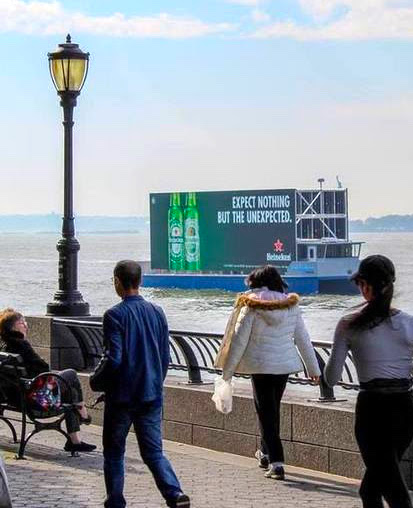
Billboards and outdoor advertising have always sparked controversy — not to be confused with signage, which, for the most part, identifies what goes on inside a particular building. The reason outdoor advertising creates so much tension is because it sits in a grey area, where an individual’s rights intersect and perhaps interfere with another’s rights.
Whether it is a door-to-door salesperson, robo calls, or pop-up ads on your computer or a billboard, the basic question remains: How much control should one be granted over what is thrust in front of them? When does a person’s right to make a living and communicate publicly infringe on another’s rights to curate the spaces they occupy. Most of the controversy and tension occurs in public spaces — the spaces we all have a legal right to occupy.
Local municipalities regulate outdoor advertising. Every community handles these issues differently. Some prohibit outdoor advertising altogether, most keep billboards out of public parks and away from schools, some are much more laissez-faire. Every community must determine where it stands on the issue. However, what happens when a billboard impacts a community but is placed outside the jurisdiction of a municipality?
For example, what if a banner sign is pulled overhead by an airplane, a billboard placed just outside the city limits or perhaps in a waterway like the billboard shown here?
This double-sided 60-foot long LED screen mounted to a boat has been navigating the waterways in and around Manhattan — waterways which are governed by maritime law. New Yorkers trying to escape the frenetic and ever present consumer messaging found in this dense urban area are comforted by a stroll in a park that overlooks the waters. The sky opens up, you can see the horizon and the relatively open waters can sooth the weary city dweller. It is a great place to get someone’s attention, but for most people this is the last place you would want a beer ad thrust into your view. As NYC activists mobilize to confront the arguably innovative media start-up company that developed this contraption, the economic, legal and political interests will likely take years for the city to untangle.
